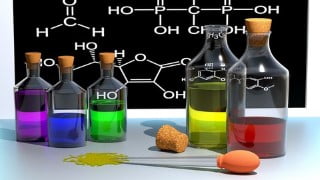Basic Science-Chemistry
This course is designed for diploma engineers to apply physics and chemistry principles in solving engineering problems. It covers various materials and machines, emphasizing their applications in different technology fields. Students engage in co-curricular activities and undertake a micro-project to develop industry-oriented skills. Suitable for diploma students after 10th grade.
What you’ll learn
- Chemical bonding
- Electrochemistry
- Corrosion
- Metal,alloys
Diploma engineers (also called technologists) have to deal with various materials and machines. This course is designed with some fundamental information to help the technologists apply the basic concepts and principles of physics and chemistry to solve broad-based engineering problems. The study of basic principles of sciences and the concepts related to various materials such as metals, alloys, inorganic salts, polymers, lubricants, paints, varnishes, adhesives, heat, electricity, magnetism, optics, semiconductors and others will help in understanding the technology courses where emphasis is on the applications of these in different technology applications. The aim of this course is to help the student to attain the following industry identified competency through various teaching learning experiences: Solve broad-based engineering problems applying principles of physics and chemistry. The theory, practical experiences and relevant soft skills associated with this course are to be taught and implemented. Other than the classroom and laboratory learning, following are the suggested student-related co-curricular activities which can be undertaken to accelerate the attainment of the various outcomes in this course: a. Market survey of different resins and compare the following points. i. Structure ii. Properties iii. Applications. b. Library survey regarding engineering material used in different industries. c. Power point presentation or animation for showing different types of bonds. Only one micro-project is planned to be undertaken by a student that needs to be assigned to him/her in the beginning of the semester. S/he ought to submit it by the end of the semester to develop the industry oriented Co. Each micro-project should encompass two or more COs which are in fact, an integration of practical’s, cognitive domain and affective domain LOs. The micro-project could be industry application based, internet-based, workshop-based, laboratory based or field-based. Each student will have to maintain dated work diary consisting of NITTTR Bhopal-MSBTE/I – Scheme/17 Page 9 of 12 Basic Science (common) Course Code: individual contribution in the project work and give a seminar presentation of it before submission. The total duration of the micro-project should not be less than 16 (sixteen) student engagement hours during the course. In the first four semesters, the micro-project could be group-based.
Who this course is for:
- for after 10th diploma students
User Reviews
Be the first to review “Basic Science-Chemistry”
You must be logged in to post a review.







There are no reviews yet.